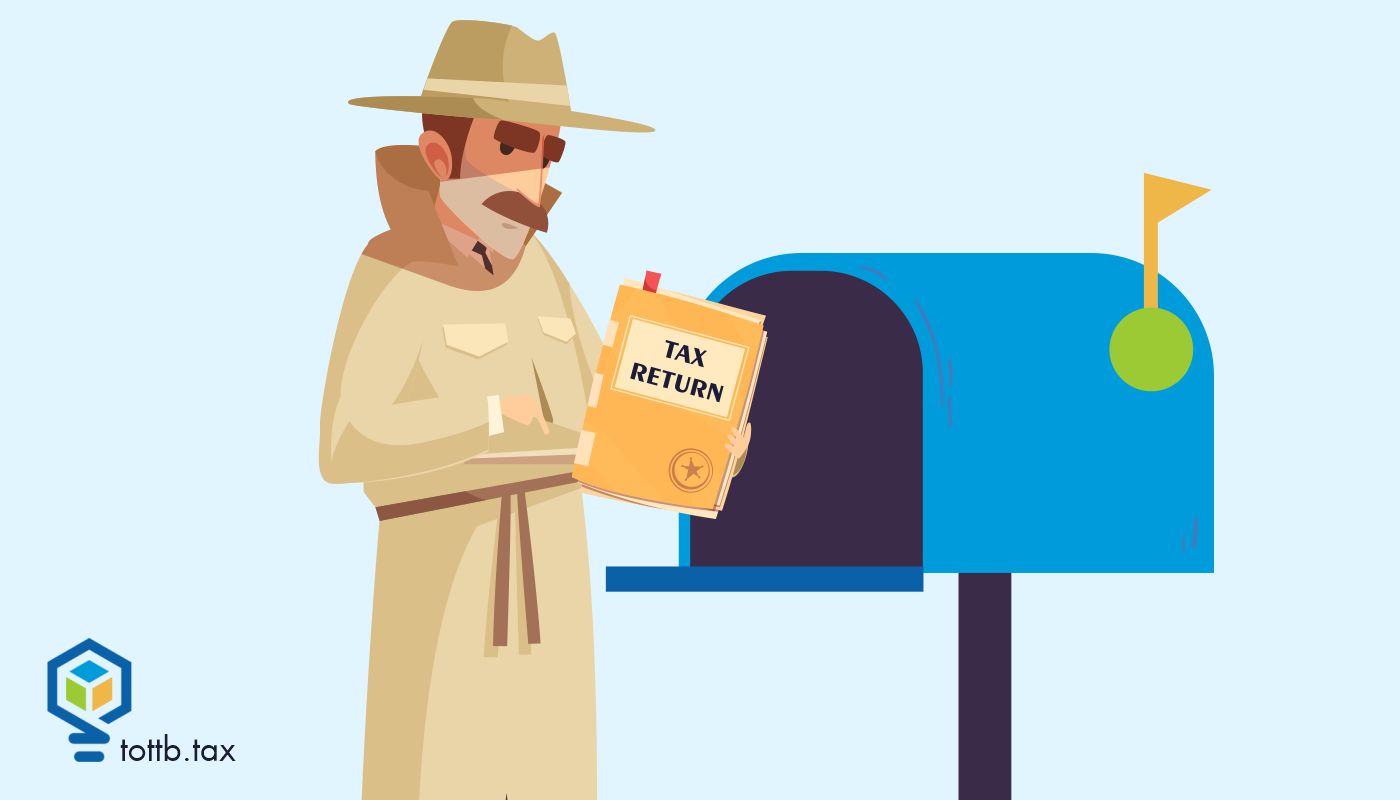
At Around the Tax World, you can find out all about what’s going on in the wonderful, worldwide world of tax. Every month, we’ll feature a few mini-articles on what’s been going on in the world when it comes to tax, and fully available for viewing even if you don’t have a subscription.
If you wish to subscribe and gain access to all articles on the site, be sure to check out the benefits of doing so here!
Check out what’s happening all around the world of tax!
In The Headlines
- Love him or hate him, Elon Musk is seeing record sales at Tesla. The carmaker recently announced that it has sold 466,000 vehicles worldwide. For auto shoppers who haven’t made their pick yet, Tesla also announced that its new Model 3s now qualify for the full federal EV tax credit of $7,500.
- Looking to upgrade from a Tesla? How about a fully electric flying car? Alef Aeronautics just received an airworthiness certification from the Federal Aviation Administration. This means that the California-based company can now “air test” the car.Alef is already taking pre-orders for these vehicles, which are expected to cost around $300,000. The cars can launch into the air with a flying range of up to 110 miles.
- California reacts to the Hollywood writers’ strike with a tax deal. A new bill would allow studios with more tax credits than they can use to exchange those credits for cash. This would mostly benefit major companies like Netflix and Warner Bros whose productions have been on pause due to the strike. The 11,000-plus members of the Writers Guild of America have been on strike since May in protest over pay rates, staffing, and the use of A.I. in film and television writing.
What's New In The Tax World?
ATTN: Next Tax Scam Victim — See Details About the Latest Tax Refund Scam Inside
The IRS has been raising the red flag about a new scam appearing in mailboxes across the nation. Taxpayers should proceed with caution if they receive a cardboard envelope containing a letter that claims they are owed a refund. The letter even has an IRS masthead at the top.
This is where the contents become suspicious: Taxpayers are told that they need to provide certain personal information, such as a photocopy of their driver’s license, cell phone number, Social Security number, bank routing information, and bank account type. Scammers are hoping to collect enough information to steal the taxpayer’s identity and even their tax refunds.
The letter even attempts to appear above board by warning that images of their driver’s license could be used by identity thieves. Contact information is included in the text, but the phone number does not connect to the actual IRS. A quick Google search of the listed phone number could be the first step in figuring out if the letter is legitimate.
Other signs of a scam include awkward language. For example, the letter requests “A Clear Phone of Your Driver's License That Clearly Displays All Four (4) Angles, Taken in a Place with Good Lighting.” Letters might also say something like, “These Must Be Given to a Filing Agent Who Will Help You Submit Your Unclaimed Property Claim. Once You Send All The Information Please Try to Be Checking Your Email for Response From The Agents Thanks." Phony letters may have unusual punctuation, a variety of fonts, and inaccurate tax return deadlines.
This new scam differs from others that often come to taxpayers via email or text message. While the IRS does send paper mail to taxpayers, the agency will never use email, texts, or social media to contact you. If you receive unsolicited messages online, you can report them to phishing@irs.gov or to the Treasury Inspector General for Tax Administration. You can also check the IRS’ website for a list of recent scams targeting taxpayers.
State-By-State Updates
- Pennsylvania seniors may see property tax rebates in their mailboxes soon. To be eligible, residents must be aged 65 or older and must earn under $35,000 per year with half of your Social Security income excluded. Around 300,000 taxpayers will receive checks, averaging about $650. Governor Josh Shapiro is proposing an expansion of this
program that could increase the average rebate to around $1,000. - Wisconsin is weighing an income tax cut amounting to $3.5 billion. The tax cut was introduced as part of a plan to reduce the state's four tax brackets to three—with lower tax rates for each. The authors of the proposal originally claimed that taxpayers would save an average of $573 in state taxes. However, under the current bill, a taxpayer would have to earn between $100,000 and $125,000 to see this high of a tax cut. About 25% of Wisconsinites earn between $31,000 and $50,000 annually, and this group would receive less than $100 back per year.
- Colorado has doubled its electric vehicle state tax credit to a maximum of $5,000. This newly-updated credit applies to vehicles that cost less than $80,000. Colorado now has the highest EV tax rebate among the states, on top of a possible federal rebate of $7,500. The state has seen increased demand for electric vehicles in recent years with battery-only and hybrid vehicles comprising 10.5% of all auto sales in 2022.
- Florida governor Ron DeSantis is promoting the Freedom Summer Sales Tax Day, which runs from Memorial Day through Labor Day weekend. This holiday is an expansion of last year’s “Freedom Week.” The tax break now lasts for three months and includes additional goods, such as children’s toys and athletic equipment, outdoor recreation gear, and entry to state parks. Legislators estimate that this initiative will save Floridians a total of $230 million this year.
Tax Planning Tips
Lawmakers are looking to boost the Child Tax Credit with both an increase and a new “baby bonus.” A number of Democrats and Republicans are joining forces to make an expanded version of the Child Tax Credit permanent. The new version of this tax break would:
- Set the maximum amount at $250 per month
- Continue the $300 per month credit available for children aged 6 and under
- Add an extra $2,000 in the month that a new baby is born
- Remove the income requirement from the full credit
The expanded Child Tax Credit was first introduced by President Joe Biden in 2021 in an effort to support lower-income families during the pandemic. Sponsors of the new bill have pointed to the impact of these 2021 changes—the funds helped more than 61 million children and lifted 4 million children out of poverty.
Garnering bipartisan support for a tax bill has been challenging in recent years, but experts say this bill could pass if both sides feel they are getting what they want. This likely means the expanded Child Tax Credit for Democrats and a business tax cut for Republicans.
What are you doing this July—and does it involve securing a tax refund? Time is rapidly running out if you have not yet claimed your 2019 tax refund. The IRS estimates that about 1.5 million taxpayers were eligible for a refund but did not file a tax return. These taxpayers have until July 17th to claim their money.
The agency has stated that the average amount for these refunds is $900, totaling about $1.4 billion in unclaimed money. Low-to-moderate income earners may be eligible for over $6,500 if they qualify for the Earned Income Tax Credit (EITC). The income thresholds to qualify for the EITC are:
- $50,162 for single filers with three or more qualifying children ($55,952 for married filing jointly)
- $46,703 for single filers with two qualifying children ($52,493 for married filing jointly)
- $41,094 for single filers with one qualifying child ($46,884 for married filing jointly)
- $15,570 for single filers with no qualifying children ($21,370 for married filing jointly)
Taxpayers should take action now if they still need to file their 2019 tax returns in case they need to reach out to an employer, bank, or other entity that paid them to get the documents they need.
NOT A MEMBER YET?

SUBSCRIBE TO GET ALL OF OUR
GREAT ARTICLES AND RESOURCES!
CURRENT EDITION

Intentionally Filing a Defective Tax Return
Creativity on a tax return is a natural tendency. Many strategies and behaviors we know are wrong, e.g. not reporting all income. However, is it ever okay to disregard some deductions and pay more tax? At first glance, it would seem that the IRS should like the idea of more reported income and a higher tax liability attached to the additional income. The IRS does not.

Side Hustles and Tax Tussles: Tax in the Gig and Share Economy Part Two
The gig economy involves more than one-off and part-time jobs. It also includes when you share your property in exchange for money. This can be a residential property, a vacation home, or even a vehicle. The gig economy has connected those who need rides and places to stay with owners via online platforms. We refer to this part of the gig economy as the share economy.
Accessing these accommodations is easy with the online platforms. But how the people participating should report their income isn’t quite as straightforward. Last time we looked at how your clients should report gig income, just like any other income made as a sole proprietor.
But making money from renting your property out is different, right? If you have clients with rental properties, you report their income on Schedule E (1040), Supplemental Income and Loss. We know from last time that we report gig economy income on Schedule C (1040), Profit or Loss from Business. So, how does rental income derived from the share economy get reported on a tax return? Every taxpayer’s favorite answer, it depends.

Loose Change in Your Couch and Maybe a Tax Break at Your Kitchen Table
A 2023 Tax Court decision upheld what many small business owners and tax practitioners have wondered about for some time. The court found that shareholders of an S corporation could exclude rental income paid to them by their S corporation for holding planning meetings in their homes. While the IRS and court found that the amounts charged by the shareholders were excessive, the court found the arrangement itself within the bounds of the law.
This article examines this case and underlying law and when and how this is a planning idea worth pursuing, the limitations and unknowns involved, and the policy implications of this long standing exclusion. The case is Sinopoli, TC Memo 2023-105 involving the exclusion at IRC Section 280A(g).
